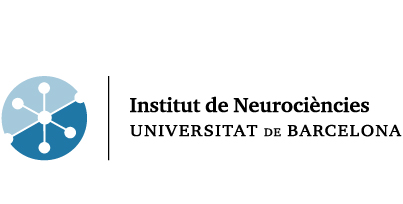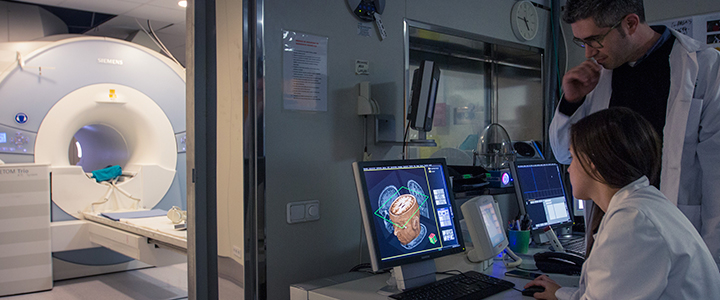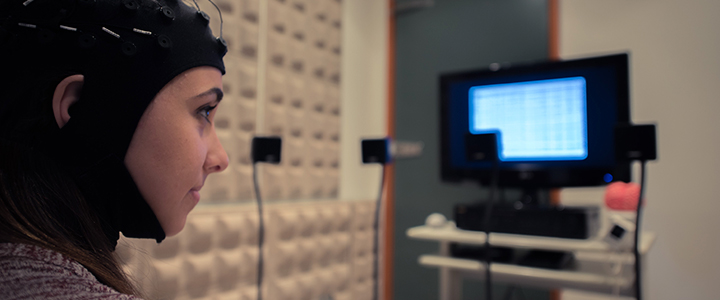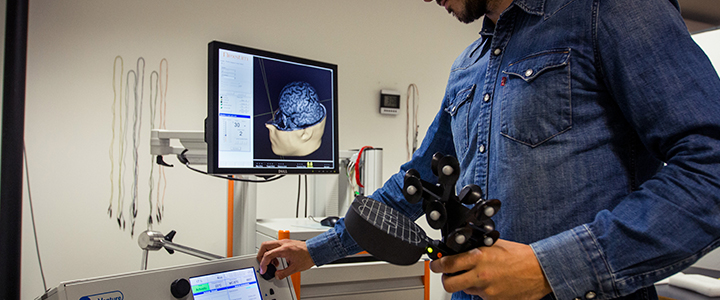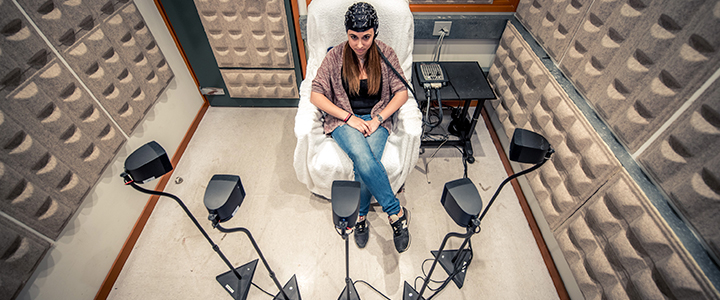Research groups
AUDITORY COGNITIVE NEUROSCIENCE
Escera, Carles >
NUMERICAL COGNITION AND MATH ANXIETY
Nuñez-Peña, María Isabel >
PREDICTIVE PROCESSES IN MOTOR-SENSORY INTERACTIONS
SanMiguel, Iria >
ADDICTION AND DUAL DISORDERS
Adan, Ana >
BARCELONA BRAIN STIMULATION LAB (BBS_LAB)
Bartrés-Faz, David >
OBESITY AND NEUROIMAGING
Jurado Luque, María Ángeles >
HEALTHY AGING AND CEREBROVASCULAR DISEASE
Mataró, María >
CEREBRAL PALSY AND NEUROIMAGING
Pueyo, Roser >
NEURODEVELOPMENTAL DISORDERS
Serra-Grabulosa, Josep M >
BRAIN MECHANISMS OF LANGUAGE LEARNING
de Diego Balaguer >
DYNAMICS OF MEMORY FORMATION
Fuentemilla Garriga, Lluís >
LEARNING FROM REWARD
Marco Pallarès, Josep >
BRAIN PLASTICITY
Rodríguez Fornells, Antoni >
NEUROVIRTUAL GROUP – LEARNING AND COGNITION: A COMPARATIVE APPROACH
ENVELLIMENT, DISCAPACITAT I SALUT (EDIS)
RESEARCH IN PRIMATOLOGY
RESEARCH AND INNOVATION GROUP ON DESIGNS (GRID)
ACTIVE PERCEPTION AND SENSORIMOTOR INTEGRATION
López Moliner, Joan >
Visió i Control de l’Acció
Super Hendrik, Anne >
ADAPTIVE BEHAVIOR AND INTERACTION RESEARCH GROUP
GRUPS DE TÈCNIQUES ESTADISTIQUES AVANÇADES APLICADES A LA PSICOLOGIA
Virtual reality applications for clinical and health psychology (VR-PSY Lab)
Representative of the research area
Dr. Maria Mataró
Departament de Psicologia Clínica i Psicobiologia
mmataro (at) ub.edu
Representative of the research area
Dr. Joan López-Moliner
Departament de Cognició, Desenvolupament i Psicologia de l’Educació
j.lopezmoliner (at) ub.edu
This focus area addresses the cerebral circuits, networks, processes and mechanisms that underpin a plethora of functions, such as perception, attention, memory, language, decision making, emotion and the control of action, to name a few, that are at the essence of cognition and give rise to the uniqueness of our human nature, a rich mental activity that can even generate the subjective phenomenon of consciousness.
Research at the Institute of Neurosciences pushes boundaries of existing knowledge in areas such as language, music, auditory perception, decision-making, and neuropsychology. The Institute has contributed important findings regarding in the genetic determinants of speech sounds encoding, language acquisition and musical anhedonia, the brain connectivity in the preterm born baby and neurobehavioural plasticity after early brain injury, addictions, and the abnormal control of reward in obesity.
